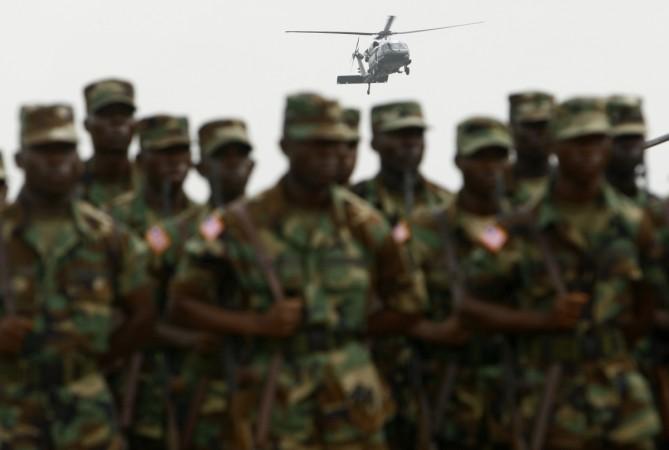
Two of the four West African nations, severely affected by the deadly Ebola virus have taken drastic measures to curb the virus, which has killed more than 900 people in the region.
Liberian President Ellen Johnson-Sirleaf declared the state of emergency late on Wednesday, after a three-day holiday was announced to allow the people to pray.
Nervous Liberians have been trying to stock up on as much necessities as possible, from their markets. Many people have tried to escape the country, in order to avoid contacting the virus. Those who have been unsuccessful in doing so have taken buses to flee to the unaffected areas of the country.
This state of emergency, announced by the government allows them to suspend all civil rights, as the army and the police forces take over. The government has now sent troops to the areas that have been worst affected by the virus, and set up quarantine measures.
"Everyone is afraid this morning," said Cephus Togba, a civil Servant, to Reuters. "Big and small they are all panicking. Everyone is stocking up the little they have."
Meanwhile, Johnson-Sirleaf said the troops were necessary to ensure "the very survival of our state and for the protection of the lives of our people."
Meanwhile, Liberian officials believe that their health care system in the country is crumbling. The health workers in the country are fleeing from their duty, fearing contacting the disease, and many hospitals have to close down, as the number of victims is overwhelming the authorities.
On Thursday, Sierra Leone also sent in troops to different communities that have been suspected to have been hit by the virus. The army have cordoned off these communities and have quarantined them.
Meanwhile, in Lagos, Nigeria, where two people have been killed by the Ebola virus, and around nine are believed to have been affected by it, doctors have gone on a strike, dealing a huge blow to the hospitals there.
The World Health Organisation (WHO) has called a meeting in Geneva, to assess the damages caused by the Ebola virus in West Africa, and decide whether an International Emergency is to be called.

















